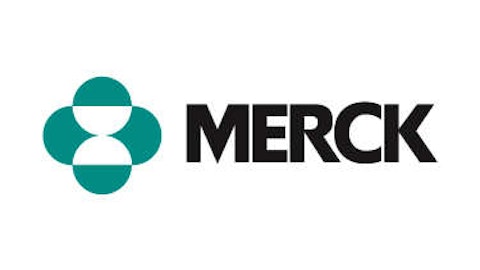This article is brief look at the medical device excise tax under the Affordable Care Act and its affect on medical device companies.
The $20 billion tax went into play on January 1. That figure is based on a 2.3 percent tax being levied on the total revenues of a medical device company whether or not the outfit generates a profit. According to the Medical Device Manufacturer’s Association (MDMA), some device outfits will owe more in taxes than the revenue generated from their operations.
In sum, the MDMA contends the tax will “stifle innovation, harm patient care and weaken the position of the United States as the global leader in medical device innovation.” However, the Association’s claim is arguable. Recent financial reporting of the top outfits in this sector offer no evidence that business is suffering.

is a leader in pharmaceutical and consumer packaged goods and medical devices. In January, Johnson & Johnson (NYSE:JNJ) reported better than expected Q4 2012 earnings of $2.6 billion or 91 cents per share eventhough total sales of $17.56 billion fell short of the Street’s expectation of $17.7 billion. However, some analysts note sales were off only for the consumer goods (band-aids, shampoos and such). And the improved earnings resulted from better sales of prescription drugs and demand for its medical devices.
Whether such demand will be affected by the excise tax is unclear. But the company’s $20 billion acquisition of Swiss orthopedics giant Synthes in 2012 put Johnson & Johnson (NYSE:JNJ) ahead of the game. The acquisition accounted for almost 8% of the device units’ revenue growth in 2012.
The real challenge for Johnson & Johnson (NYSE:JNJ) is product liability cases connected to problems with artificial hip replacements. Over the weekend, a Los Angeles jury began deliberations over a faulty hip implant. This is the first case to go to trial in a wave of legal actions connected to its metal-on-metal device. Johnson & Johnson (NYSE:JNJ) also recently lost a lawsuit over the failure of a trans-vaginal surgical mesh device. Last week a New Jersey jury awarded a woman $3.35 million in compensatory damages as well as $7.76 million in punitive damages.
There are about 1,800 similar cases facing the company. This might lead to rewards in the billions. In short, these suits are a far greater challenge than the excise tax.
is the world’s largest medical technology company offering a wide range of medical therapies for treating cardio-vascular diseases, diabetes and neurological disorders.
For the quarter ended January 25, Medtronic, Inc. (NYSE:MDT) reported a profit of $988 million, or 97 cents a share, up from $935 million, or 88 cents a share, a year earlier. Further, adjusted earnings from continuing operations climbed to 93 cents from 84 cents while revenue increased 2.8 percent to $4.03 billion (an increase of 4 percent). Medtronic, Inc. (NYSE:MDT)’s fiscal third-quarter earnings rose 5.7 percent as it reported stronger revenue despite soft markets for some spine and heart products.
In particular, sales of defibrillators (which shock hearts to stop potentially fatal rhythm distortions) have faced enhanced government scrutiny by the FDA over implant practices. But the company showed stronger performance is other areas such as neuro-modulation, and catheter-delivered heart valves to lift overall corporate growth.
also faces greater challenges for product liability than the excise tax poses. Some of these are related to faulty wiring in its cardio-rhythm devices. The company develops, manufactures, and distributes cardiovascular valves and implantable neuro-stimulation medical devices (like insulin pumps).
St. Jude has a market cap of $12.8 billion, with a price/earnings ratio of 11.9. In 2013, shares are up about 15 percent. Last week, the outfit announced raised its quarterly dividend by 9 percent to 25 cents a share from 23 cents. This lifts the annual dividend to $1.00 per share from the current payout of 92 cents (a dividend yield of about 2.4 percent).
However, as mentioned the company faces product liability issues. Last month St. Jude announced the recall of a potentially faulty wire in a device that closes openings between the two upper chambers of the heart.
This move came on the heels of warnings from the U.S. Food and Drug Administration that the firm had failed to respond to FDA inquiries regarding same.
In the final analysis, across this market sector the medical device excise tax looks like a minor impediment to future earnings compared to the perils of product liability lawsuits. Ultimately, the costs of the tax will invariably be passed onto consumers. So, the total costs of the Affordable Care Act excise tax remain to be seen. And the question remains as to the effect of liability cases.
The article How the ACA’s Tax Provisions Affect the Medical Device Sector originally appeared on Fool.com and is written by Kyle Colona.
Copyright © 1995 – 2013 The Motley Fool, LLC. All rights reserved. The Motley Fool has a disclosure policy.




